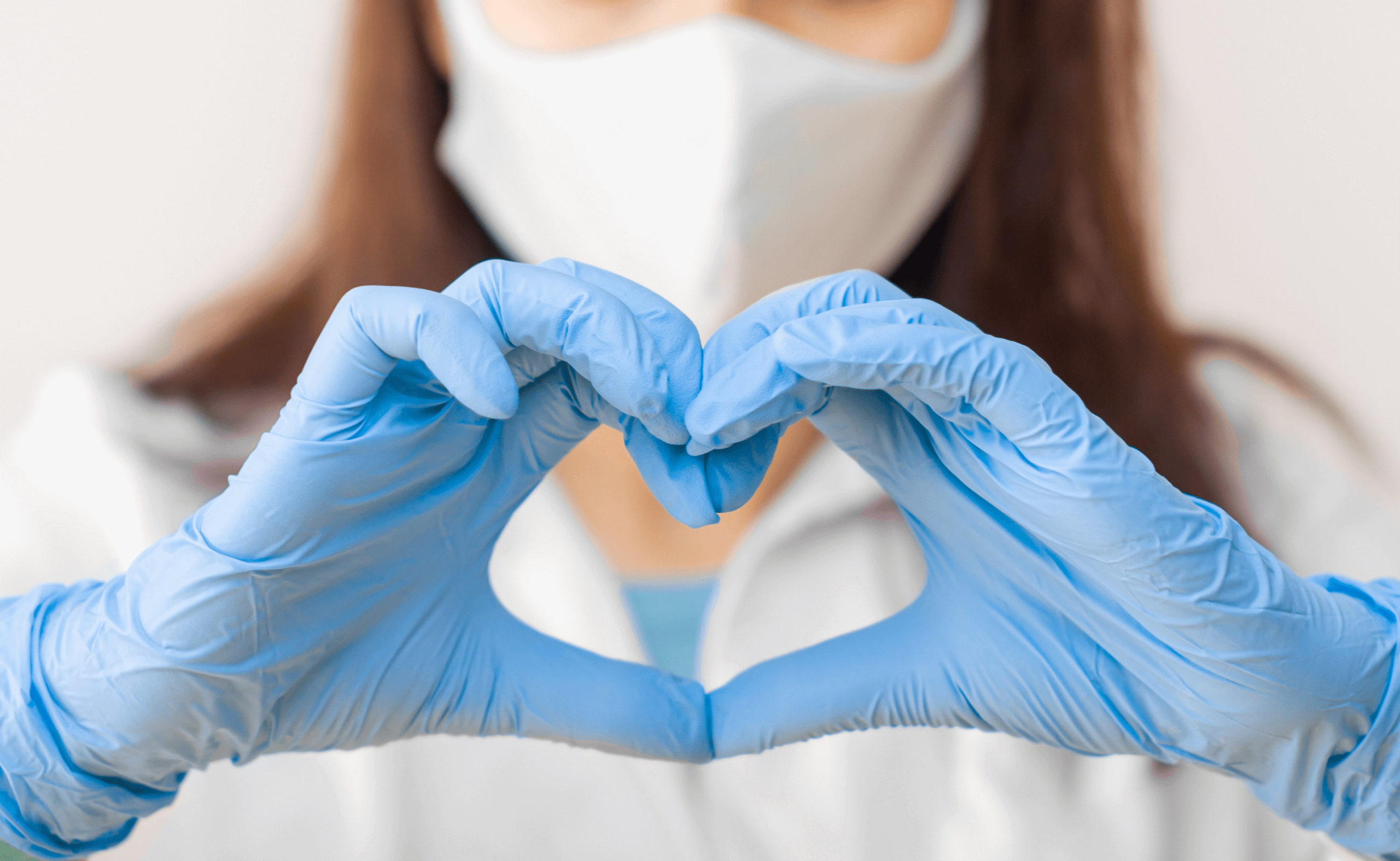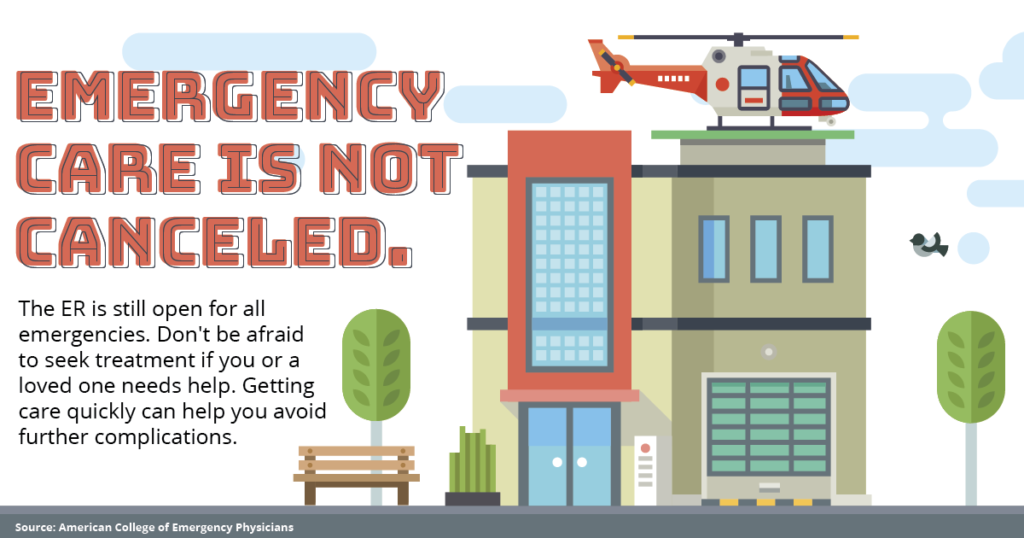Don’t Delay Getting the Non-Coronavirus Care You Need

In the midst of the coronavirus pandemic, health concerns unrelated to COVID-19 still happen.
Even as states begin to reopen and lift some restrictions, there are still concerning trends that have emerged in recent weeks. Throughout the pandemic, people with warning signs of a heart attack, stroke, or other health emergency have put off getting the care they need*, due to concerns that they may become infected if they enter a medical facility or emergency room.
When it comes to non-emergency care, there have been weeks of cancelled and postponed elective procedures, routine checkups, and preventive screenings, leaving health problems for some both undetected and untreated.
If you are seeking care or have health questions that are unrelated to COVID-19, here are seven tips to consider:
1. Don’t delay care for an emergency
Don’t delay care if you are experiencing an emergency. Fast treatment in an emergency often raises the odds of survival, and it lowers the risk of serious complications from an illness or injury. You can access emergency care right from your phone with ER Anywhere, which connects you with an emergency medical provider who can assess your condition and guide you through the next steps.

2. Don’t delay care for growing concerns
Don’t delay care if you are experiencing a growing health concern that doesn’t rise to the level of an emergency. Left untreated, a concern that you may have kept an eye on for weeks could lead to an advanced and potentially life-threatening health condition.
3. Rely on telemedicine as an option
Rely on telemedicine as an option. Call your primary care physician (PCP) to see if they have appointments available by video for you to discuss symptoms or health concerns you may be having. You can also use Doctor On Demand to connect instantly to a doctor any time of day from your phone, table or computer.
4. Don’t forget about your dental health
Don’t forget about your dental health. Even if your routine checkup has been delayed, putting off a problem with your teeth or mouth could lead to bigger problems and in severe cases, a visit to the emergency room. Call your dentist to see if they are able to schedule an appointment if you have a concern about your oral health. The Centers for Disease Control and Prevention (CDC) have issued guidelines for dentists to follow to ensure the safety of patients who need to be seen.
5. Watch for updates from your doctor
Keep an eye out for updates from the doctors and medical professionals you see. Many offices are providing updates via email and on their websites regarding availability, appointments, and how they have responded to concerns over coronavirus.
6. Follow the CDC guidelines
If you do leave your home to seek any medical care, remember the CDC guidelines related to the COVID-19 outbreak:
- Be sure to alert the medical office or facility first if you think you’ve been exposed to or have been diagnosed with COVID-19.
- Cover your mouth and nose with a cloth face covering when you have to go out in public.
- Do not touch your eyes, nose, or mouth.
- Use disinfecting wipes on frequently touched surfaces such as handles, knobs, touchpads (if available).
- Stay at least 6 feet away from others while inside and in lines.
- When paying, use touchless payment methods if possible. If you cannot use touchless payment, sanitize your hands after paying with card, cash, or check. Wash your hands with soap and water for at least 20 seconds when you get home.
7. Make sure you have the prescriptions you need
Make sure you have the prescriptions you need. When possible, plan to order and pick up all prescriptions you need at one time to limit your trips to the pharmacy. You can also find out if your prescriptions can be delivered to you.
Along with these tips, make sure you’re taking steps such as eating healthy, staying active at home, and caring for your mental health. All can be a benefit to your overall health, and help you to avoid serious health concerns now and down the road.
*Source: American College of Cardiology
Learn more about what CDPHP has done and is doing to meet the needs of its members, providers, and employees during the COVID-19 pandemic in this podcast by Dr. John Bennett, CDPHP president and CEO.
 The Daily Dose
The Daily Dose
Comments are closed.